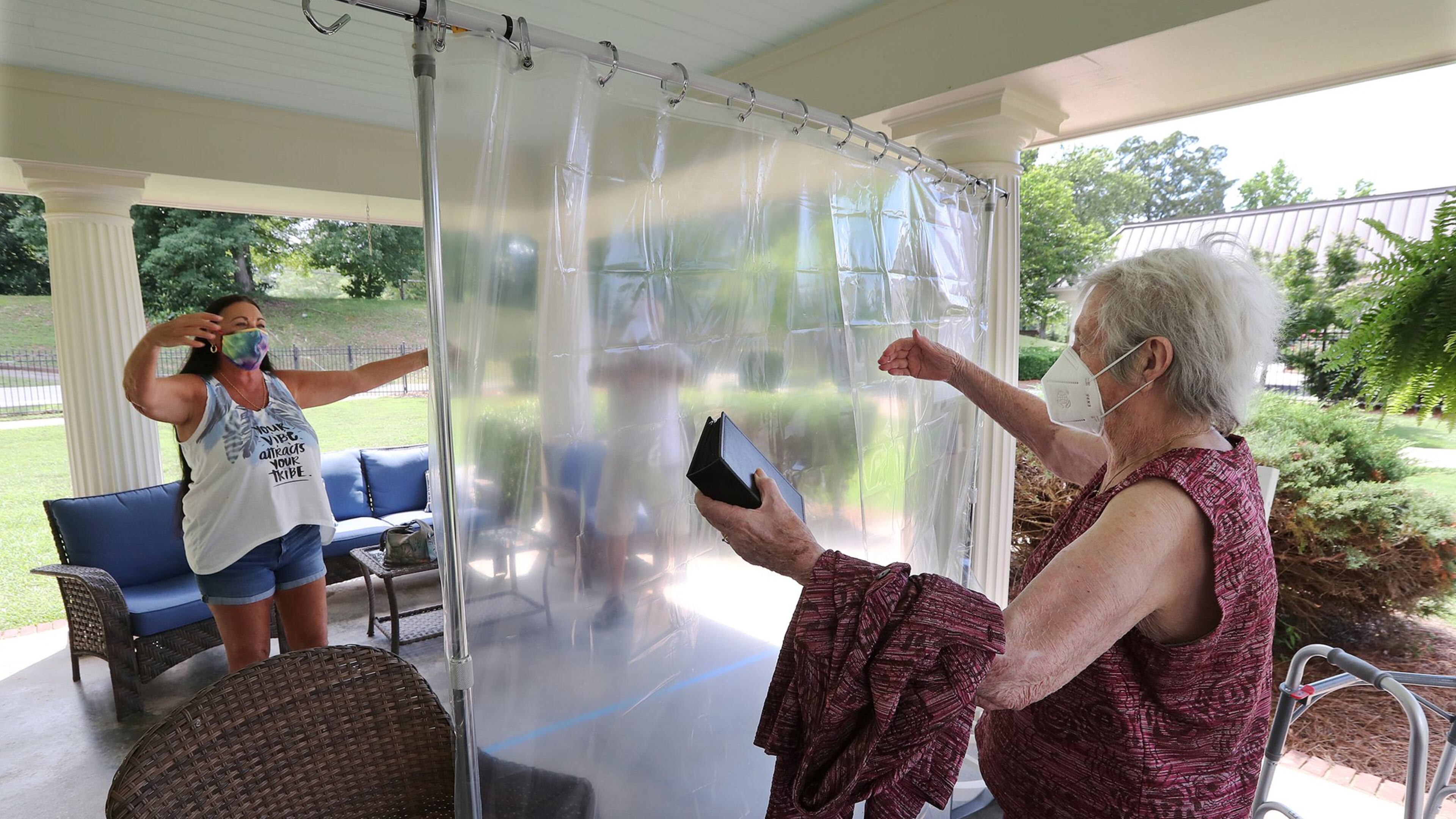Georgia updates nursing home visit rules

Gov. Brian Kemp’s administration this week updated nursing home and assisted living visitation rules to pave a clearer path for families to resume seeing loved ones amid the coronavirus pandemic.
The new guidelines still restrict visitations in homes that have active coronavirus cases and in counties with high infection rates. But the new guidelines ease some of the more stringent requirements that were part of Kemp’s initial order issued Sept. 15. They bring the state’s rules in line with federal guidelines released by the Centers for Medicare and Medicaid Services last Thursday.
Families, providers and advocates across Georgia have become concerned that months of lockdowns to protect vulnerable seniors from infection have caused collateral damage from isolation and loneliness.
The order tries to balance protection against the virus with the need to break this isolation.
“Georgia’s top priority in our fight against COVID-19 has been protecting our state’s most vulnerable populations,” Kemp said. “I have heard from the families of Georgia’s long-term care facility residents who have been anxious to have a greater ability to spend quality time together in person for the mental and emotional well-being of their loved ones.”
The new guidelines require homes to be free of coronavirus cases for at least two weeks before taking on general visits. That is less than the 28-day restriction Kemp issued last week.
County infection rates still dictate whether facilities can resume visitations, and many Georgia counties still have high rates that would preclude easing restrictions. But the new guidelines simplify those formulas and will likely allow visitations sooner than Kemp’s previous order.
Facilities in counties with a positivity rate of 10 percent or less can begin easing restrictions and provide limited indoor visitations. Visitors will need to wear masks and follow other safety guidelines.
“This new phased reopening plan is a much better balance between resident safety and meeting the well-being needs of elder Georgians,” said Mark A. Lowell, executive director at St. George Village, a life plan community in Roswell with independent living, assisted living and a nursing home.

Still, as families begin to visit facilities, there will likely be a higher risk of their introducing the infection. Providers are watching this closely to see how it’s playing out in states that have already resumed visits, said Tony Marshall, president and CEO of the Georgia Health Care Association, a nursing home trade group with sister organizations in other states.
“We’re very happy for families and resident so they can reconnect," he said. "We just want to makes sure we’re doing it safely.”
Some advocates are concerned, however, that the new guidelines don’t provide enough protections to ensure seniors' safety.
The CMS guidelines lack necessary provisions, such as requiring and supplying rapid on-site testing of all visitors, to protect those living in congregate settings, said MaryLea Boatwright Quinn, director of government relations with the Alzheimer’s Association, Georgia Chapter.
“Deaths in these settings are preventable, and the Alzheimer’s Association is disappointed that states are effectively being told they cannot impose guidelines that are more stringent than the CMS guidance,” she said.


